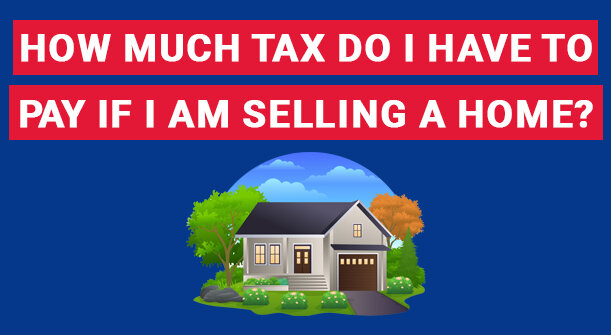
As a real estate agent, I have seen many homeowners overlook the tax implications of selling their homes. Selling a home can be a complicated process, and taxes are one of the most overlooked aspects of the transaction. Below is an overview of the tax implications of selling a home and offer tips for reducing your tax liability.
Selling a Home
Selling a home can be an exciting and stressful time. Whether you are downsizing, upgrading, or relocating, there are many things to consider when selling your home. One of the most important things to keep in mind is the tax implications of the transaction.
The tax implications of selling a home vary depending on several factors, including how long you have owned the home, how much you paid for it, and how much you sell it for. It is important to understand these tax implications so that you can plan accordingly and avoid any surprises come tax time.
Capital Gains Tax on Home Sales
One of the most significant tax implications of selling a home is the capital gains tax. Capital gains tax is a tax on the profit you make from selling an asset, such as a home. The amount of capital gains tax you owe depends on several factors, including your income, how long you owned the home, and how much profit you made from the sale.
If you owned the home for less than a year, you will be subject to short-term capital gains tax, which is taxed at your ordinary income tax rate. If you owned the home for more than a year, you will be subject to long-term capital gains tax, which is taxed at a lower rate.
Exclusions and Exemptions for Capital Gains Tax
Fortunately, there are exclusions and exemptions for capital gains tax when selling your primary residence. The most significant exclusion is the primary residence exclusion, which allows you to exclude up to $250,000 of capital gains if you are single and up to $500,000 if you are married filing jointly.
To qualify for the primary residence exclusion, you must have owned and lived in the home as your primary residence for at least two of the five years leading up to the sale. You can use this exclusion once every two years.
How to Calculate Capital Gains Tax on a Home Sale
To calculate capital gains tax on a home sale, you will need to determine your basis in the home and subtract it from the sale price. Your basis is generally the purchase price plus any improvements you made to the home, minus any depreciation taken.
Once you have determined your basis, you can subtract it from the sale price to determine your capital gain. If your capital gain is less than the exclusion amount, you will not owe any capital gains tax. If your capital gain is more than the exclusion amount, you will owe capital gains tax on the amount over the exclusion.
Tax Implications of Selling a Home as an Investment Property
If you sell a home that you have been using as an investment property, you will be subject to capital gains tax on the profit you made from the sale. The amount of capital gains tax you owe will depend on how long you owned the property and how much profit you made from the sale.
If you owned the property for less than a year, you will be subject to short-term capital gains tax, which is taxed at your ordinary income tax rate. If you owned the property for more than a year, you will be subject to long-term capital gains tax, which is taxed at a lower rate.
Deductible Expenses When Selling a Home
When you sell your home, you may be able to deduct certain expenses from your capital gains. These expenses include real estate commissions, title and escrow fees, and seller-paid closing costs. You may also be able to deduct the cost of any repairs or improvements you made to the home before selling it.
It is important to keep track of these expenses and provide them to your tax professional when preparing your tax return.
Tax Implications of Short Sales and Foreclosures
If you sell your home through a short sale or foreclosure, you may be subject to cancellation of debt (COD) income. COD income is the amount of debt that is forgiven or canceled by the lender. This income is taxable and must be reported on your tax return.
Fortunately, there are exceptions to this rule for certain situations, such as if the debt was discharged in a bankruptcy proceeding or if you were insolvent at the time of the debt forgiveness.
Tips for Reducing Tax Liability When Selling a Home
There are several tips you can follow to reduce your tax liability when selling your home. These include:
- Keeping track of all deductible expenses
- Timing the sale of your home to take advantage of the primary residence exclusion
- Considering a 1031 exchange if you are selling an investment property
- Consulting with a tax professional before making any decisions
Contact Our Louisville Cash Real Estate Experts
If you need to sell your house fast but don’t want the hassle of a traditional home sale, contact We Buy Real Estate. We buy houses as-is. No repairs are needed. Avoid closing costs and realtor commissions. Close in as little as seven days. Call 502-458-2722 to get a guaranteed cash offer on your home from our local home buyers in Kentucky.

